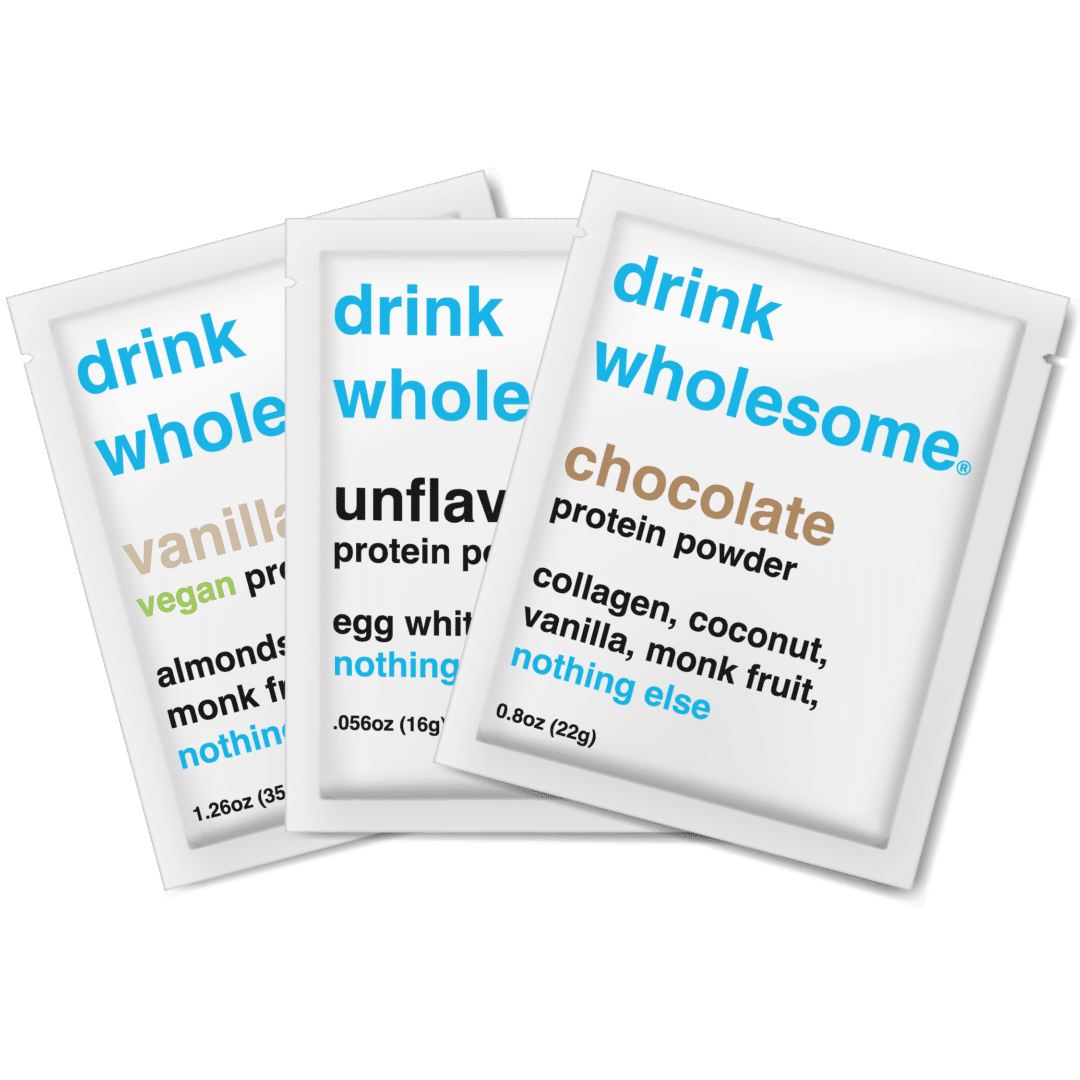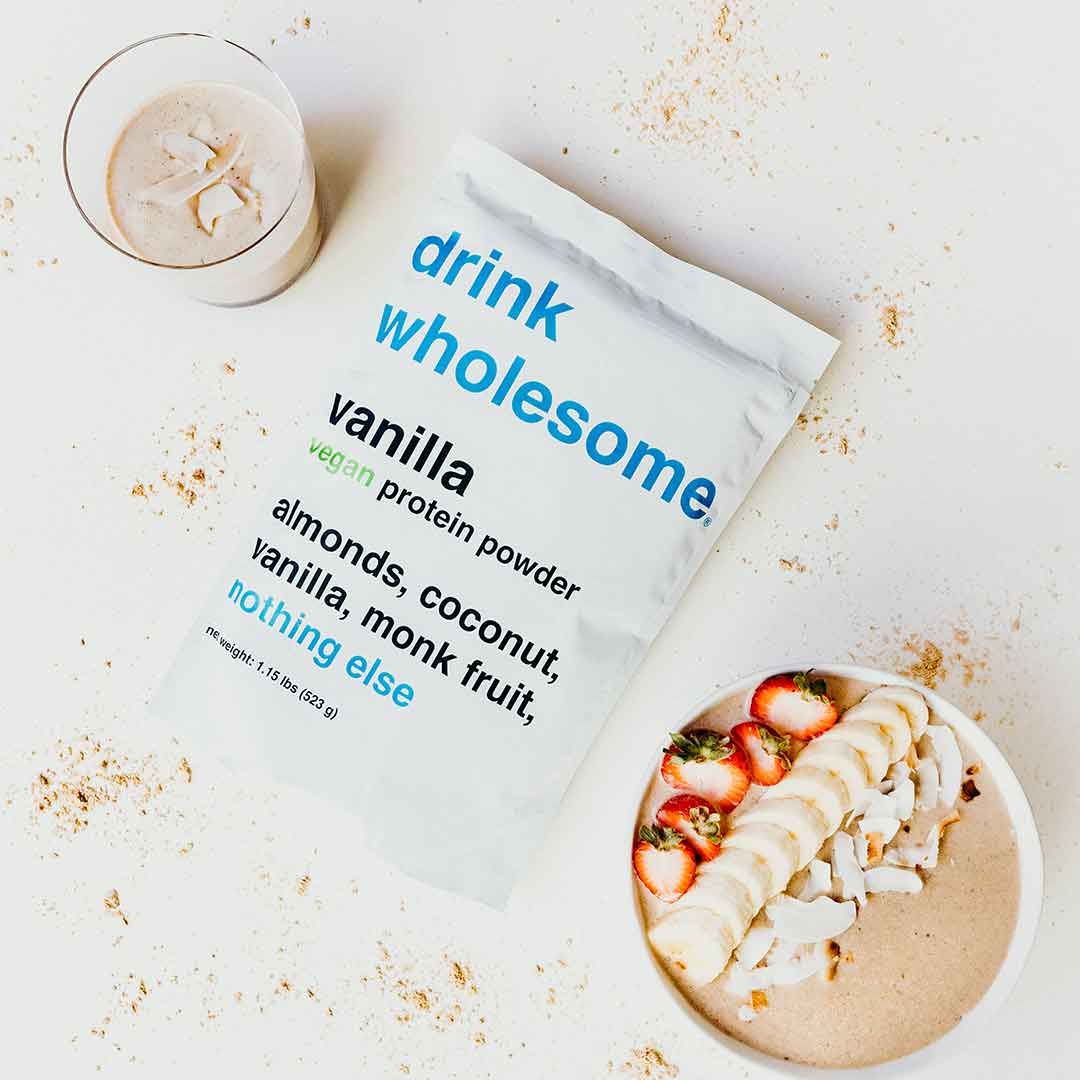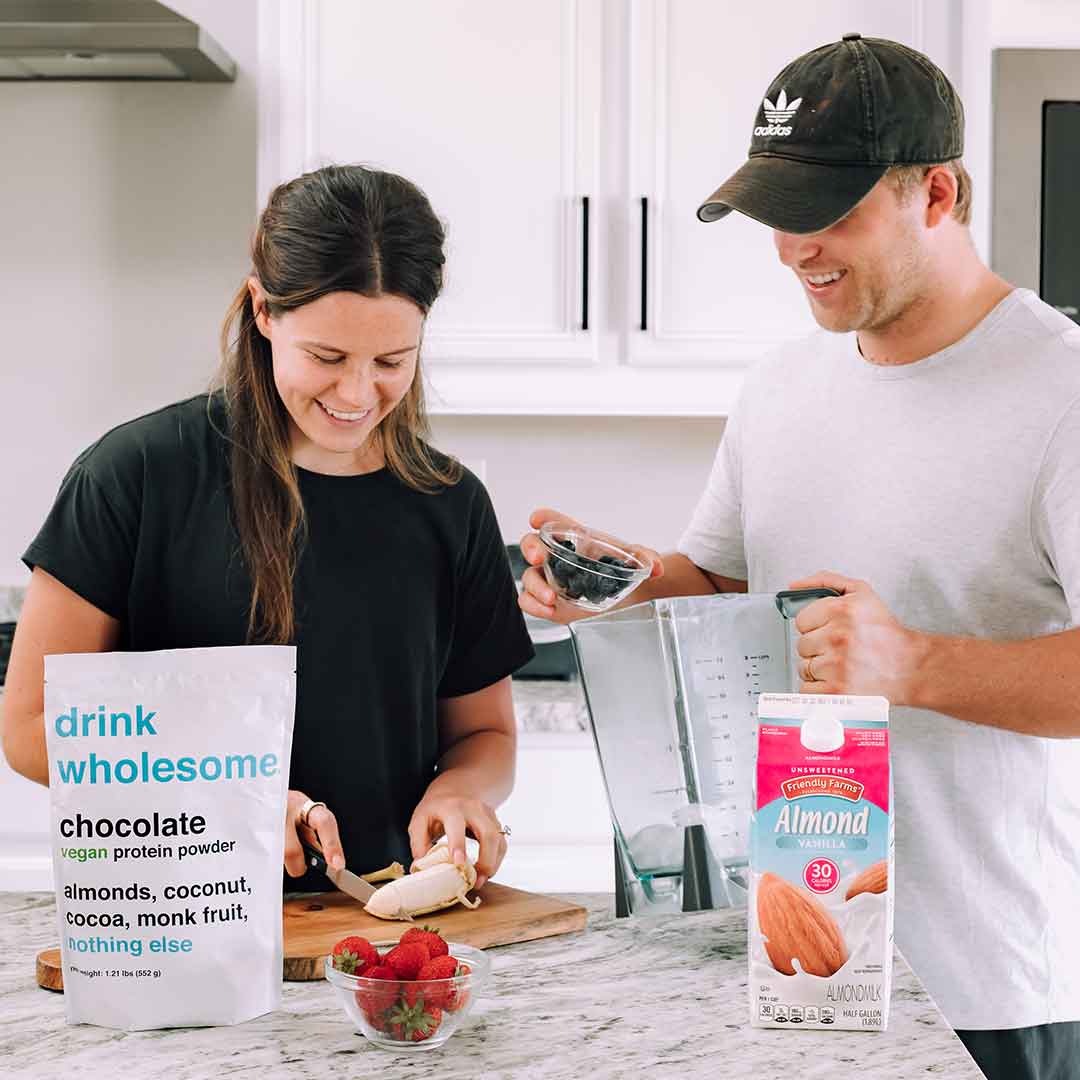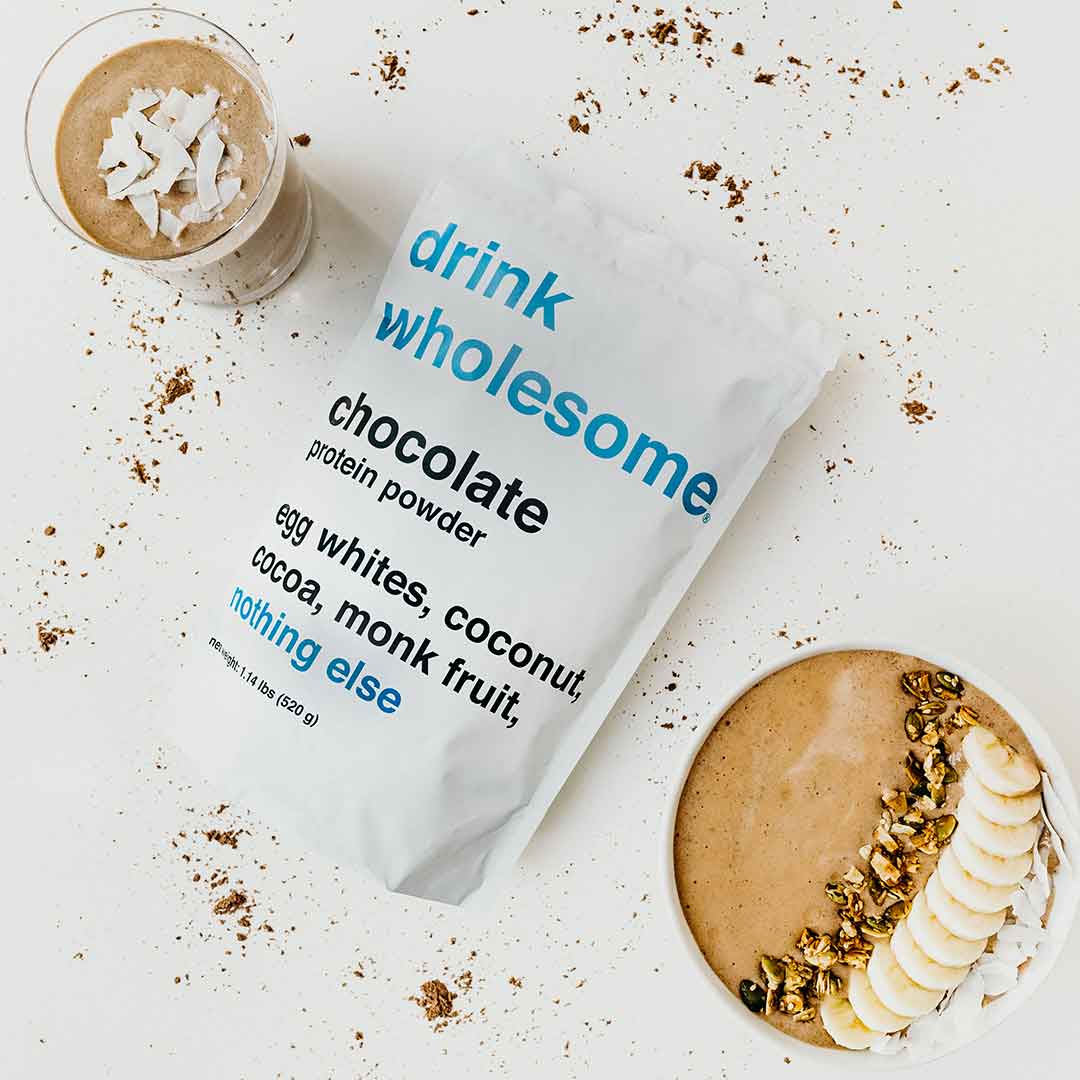drink wholesome is the best substitute for whey protein powder.
What is whey?
Whey is a liquid byproduct of cheese and yogurt production. It is composed of water, lactose, minerals, and whey protein. Whey protein is often extracted from whey and sold as a dietary supplement due to its high protein content.
What is wrong with whey?
Here are 3 reasons why you should avoid whey protein.
1. Whey can cause digestive issues. This is especially true for people with lactose sensitivity (intolerance) and irritable bowel syndrome (IBS).
2. Whey protein can cause acne. Dairy indirectly stimulates insulin production, which regulates sebum production. Sebum, an oily, waxy substance produced by your body’s sebaceous glands, can clog your pores and cause pimples.
2. Whey is not sustainable. Although whey protein does offer a way for farmers to reduce waste, it is part of the industrial dairy industry, which has a profound impact on the environment. Dairy cows and their manure produce enormous amounts of greenhouse gas emissions, the poor handling of manure and fertilizers pollute local water resources, and unsustainable dairy farming and feed production can also lead to the loss of ecologically important areas such as prairies, wetlands, and forests.
What is the best substitute for whey protein powder?
Here are 4 reasons why egg white protein powder is the best substitute for whey protein powder.
1. Egg whites are naturally high in protein. A dried egg white is 80% protein, which gives it, pound for pound, the heaviest protein punch of any whole food. Most other dietary protein sources (peas, whey, etc.) have to be mechanically or chemically stripped of other nutrients (fats, carbs. etc.) before they can be used as protein powder.
2. Egg white protein is complete. A complete protein contains all nine essential amino acids that the body needs but cannot produce on its own. Many dietary proteins, including most plant-based proteins, are not complete.
3. Egg whites are easy to digest. Unless you have a sensitivity or allergy to eggs, egg white protein is the best protein for people with gut issues and sensitive stomachs. It is dairy-free, low in fiber, low-FODMAP, naturally alkaline, and has the highest protein digestibility-corrected amino acid score (PDCAAS) of any dietary protein. Our customers have experienced fewer digestive issues with egg white protein than with any other type of protein.
4. Egg whites taste good. Most protein powders, including most whey protein powders, have a chalky aftertaste because they are made with protein isolates. Egg whites, on he other hand, are simply pasteurized and dried before becoming protein powder, so they taste like real food!
One of the reasons why we make the best substitute for whey protein powder is that we do not use food additives. Most protein powders, on the other hand, are full of food additives. Although not necessarily bad for you in small quantities, additives can add up quickly (especially if you drink a protein shake every day), and cause gastrointestinal (GI) side effects like bloating, constipation, diarrhea, gas, and stomach pain.
Food additives are hard to digest, and sit in your gut for longer than food should, which gives your gut bacteria more time to eat. As they eat, these bacteria produce gas, causing bloating and stomach pain. Gas also slows colonic transit (the amount of time it takes food to travel through the colon), which can lead to constipation. In the long term, food additives can disrupt regulatory pathways in the intestine and trigger the development of inflammatory bowel disease (IBD) and systemic inflammatory disorders.










